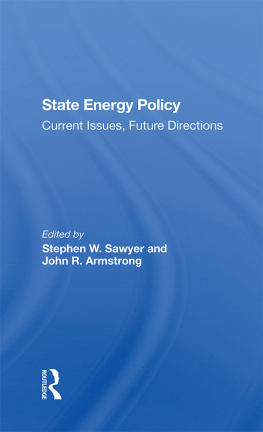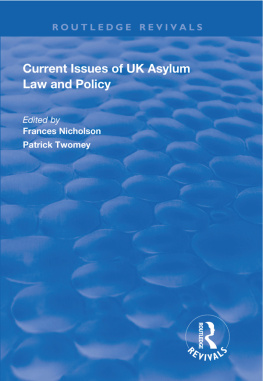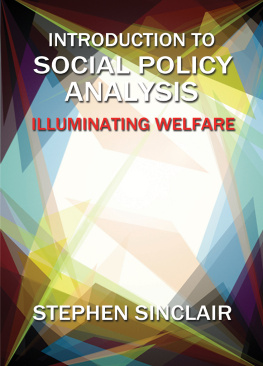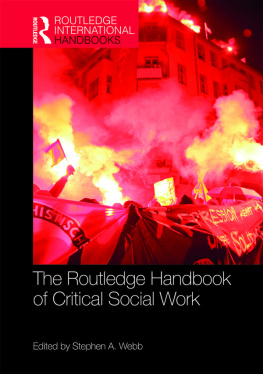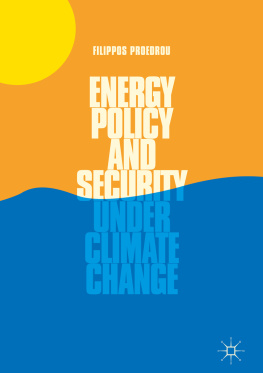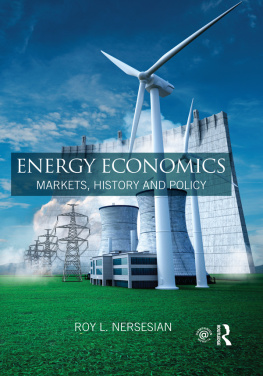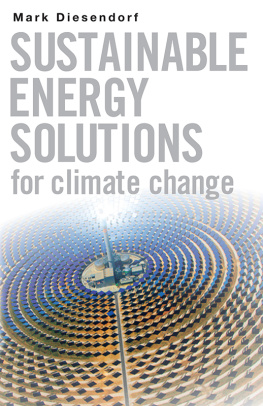State Energy Policy
Westview Special Studies
The concept of Westview Special Studies is a response to the continuing crisis in academic and informational publishing. Library budgets for books have been severely curtailed. Ever larger portions of general library budgets are being diverted from the purchase of books and used for data banks, computers, micromedia, and other methods of information retrieval. Interlibrary loan structures further reduce the edition sizes required to satisfy the needs of the scholarly community. Economic pressures on university presses and the few private scholarly publishing companies have greatly limited the capacity of the industry to properly serve the academic and research communities. As a result, many, manuscripts dealing with important subjects, often representing the highest level of scholarship, are no longer economically viable publishing projects--or, if accepted for publication, are typically subject to lead times ranging from one to three years.
Westview Special Studies are our practical solution to the problem. As always, the selection criteria include the importance of the subject, the work's contribution to scholarship, and its insight, originality of thought, and excellence of exposition. We accept manuscripts in camera-ready form, typed, set, or word processed according to specifications laid out in our comprehensive manual, which contains straightforward instructions and sample pages. The responsibility for editing and proofreading lies with the author or sponsoring institution, but our editorial staff is always available to answer questions and provide guidance.
The result is a book printed on acid-free paper and bound in sturdy, library-quality soft covers. We manufacture these books ourselves using equipment that does not require a lengthy make-ready process and that allows us to publish first editions of 300 to 1000 copies and to reprint even smaller quantities as needed. Thus, we can produce Special Studies quickly and can keep even very specialized books in print as long as there is a demand for them.
About the Book and Editors
With the advent of "New Federalism" and reduced federal attention on regional energy concerns, the states are now in the forefront of energy policy in the United States, extensively involved in implementing federal conservation programs, pursuing independent initiatives, and adopting entirely new directions in the regulation of electric and gas utilities. This book is unique in that it provides the first comprehensive assessment of energy policies, evaluating state conservation and renewable energy programs, highlighting innovative program efforts, and presenting the lessons learned from the states' implementation experiences. Most chapters focus on increasing energy efficiency--the area of greatest opportunity for most states. The contributors to this volume review the current issues in state energy policy and discuss future directions and needs.
Stephen W. Sqwver is assistant professor in the Department of Geography at the University of Maryland. John R. Armstrong was formerly director of the Office of Energy Conservation and Development at the Minnesota Department of Energy and Economic Development. He is now an energy consultant for developing countries.
State Energy Policy
Current Issues, Future Directions
edited by
Stephen W. Sawyer and John R. Armstrong
First published 1985 by Westview Press, Inc.
Published 2019 by Routledge
52 Vanderbilt Avenue, New York, NY 10017
2 Park Square, Milton Park, Abingdon, Oxon OX14 4RN
Routledge is an imprint of the Taylor & Francis Group, an informa business
Copyright 1985 Taylor & Francis
All rights reserved. No part of this book may be reprinted or reproduced or utilised in any form or by any electronic, mechanical, or other means, now known or hereafter invented, including photocopying and recording, or in any information storage or retrieval system, without permission in writing from the publishers.
Notice:
Product or corporate names may be trademarks or registered trademarks, and are used only for identification and explanation without intent to infringe.
Library of Congress Cataloging in Publication Data
State Energy Policy: Current Issues, Future Directions
(A Westview special study in natural resources
and energy management)
Includes index.
1. Energy policy--United States--States. I. Sawyer,
Stephen W. II. Armstrong, John R.
HD9502.U52S8145 1985 333.79'0973 84-25607
ISBN 13: 978-0-367-28867-9 (hbk)
Contents
Stephen W. Sawyer
John Randolph
Robert E. Webber
Eric Hirst
Michael Sherman
Paul David Wellstone and Barry M. Casper
John A. Wilson
Stephen W. Sawyer and Richard R. Lancaster
Gigi Coe
Stephen W. Sawyer
Mitchell Rosenberg and David R. Wolcott
Paul F. Levy
Jon M. Veigel and Sanford Lakoff
John R. Armstrong
This book is the product of the good will and hardwork of many people. The contributors, all recognized experts in their fields, are thanked for providing thoughtful, informative chapters and for accommodating editorial suggestions and revisions. Westview Press is thanked for providing the opportunity to address a serious omission in the energy literature. The Geography Department at the University of Maryland made a similarly generous commitment of secretarial staff and faciltiies. Allen Eney aided in the construction of computerized maps. Many skilled, conscientious individuals at state energy offices, public utility commissions, the U.S. Department of Energy, and other organizations supplied essential data and produced many of the analytic studies that underlie the contents of the book. Patti Leedham provided patient and expert typing through numerous revisions of the chapters and many tables. Patricia Sawyer provided essential guidance, support, and proofreading throughout the entire effort.
Stephen W. Sawyer
John R. Armstrong
JOHN R. ARMSTRONG, now a consultant on energy In developing countries, was Director of Energy Conservation and Development in the Minnesota Dept. of Energy and Economic Development for seven years until July 1985. Previous to that, he was Manager of the Wisconsin Energy Office. During his tenure, he led Minnesota to one of the outstanding records in energy conservation, initiating programs which have been emulated by many other states.
BARRY M. CASPER, PhD, is Professor of Physics at Carleton College. Together with Paul Wellstone, he authored the book, Power Line: The Battle of America's Energy War . He is co-director of the Science, Technology and Public Policy Program at Carleton and has written extensively on energy policy in various national journals.
GIGI COE is Assistant Executive Director for Long Range Planning at the California Energy Commission. She served formerly as a Commissioner's Advisor at the CEC and as Deputy Director of the Governor's Office of Appropriate Technology. She is author of several books on energy, most recently a co-author of The Home Energy Decision Book, published by Sierra Club looks"
ERIC HIRST, PhD, is Group Leader of the Evaluation Systems Group in the Energy Division at Oak Ridge National Laboratory. Based at Oak Ridge since 1970, he was on assignment with the Minnesota Energy Agency in 1979 and earlier spent 15 months as Director of the Office of Transportation Research in the Federal Energy Administration. He is the national leader in energy program evaluation research.


